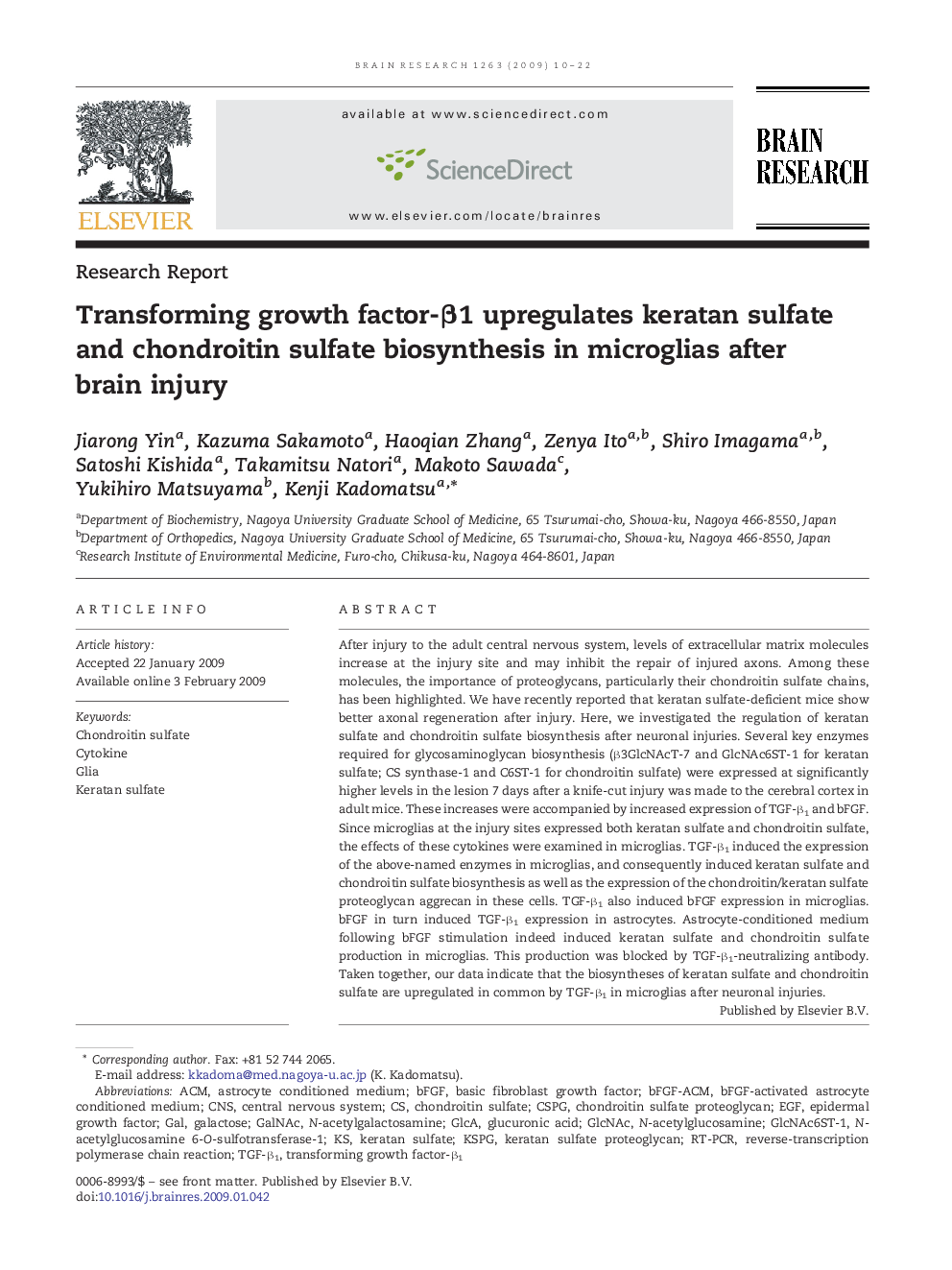| Article ID | Journal | Published Year | Pages | File Type |
|---|---|---|---|---|
| 4328390 | Brain Research | 2009 | 13 Pages |
After injury to the adult central nervous system, levels of extracellular matrix molecules increase at the injury site and may inhibit the repair of injured axons. Among these molecules, the importance of proteoglycans, particularly their chondroitin sulfate chains, has been highlighted. We have recently reported that keratan sulfate-deficient mice show better axonal regeneration after injury. Here, we investigated the regulation of keratan sulfate and chondroitin sulfate biosynthesis after neuronal injuries. Several key enzymes required for glycosaminoglycan biosynthesis (β3GlcNAcT-7 and GlcNAc6ST-1 for keratan sulfate; CS synthase-1 and C6ST-1 for chondroitin sulfate) were expressed at significantly higher levels in the lesion 7 days after a knife-cut injury was made to the cerebral cortex in adult mice. These increases were accompanied by increased expression of TGF-β1 and bFGF. Since microglias at the injury sites expressed both keratan sulfate and chondroitin sulfate, the effects of these cytokines were examined in microglias. TGF-β1 induced the expression of the above-named enzymes in microglias, and consequently induced keratan sulfate and chondroitin sulfate biosynthesis as well as the expression of the chondroitin/keratan sulfate proteoglycan aggrecan in these cells. TGF-β1 also induced bFGF expression in microglias. bFGF in turn induced TGF-β1 expression in astrocytes. Astrocyte-conditioned medium following bFGF stimulation indeed induced keratan sulfate and chondroitin sulfate production in microglias. This production was blocked by TGF-β1-neutralizing antibody. Taken together, our data indicate that the biosyntheses of keratan sulfate and chondroitin sulfate are upregulated in common by TGF-β1 in microglias after neuronal injuries.
